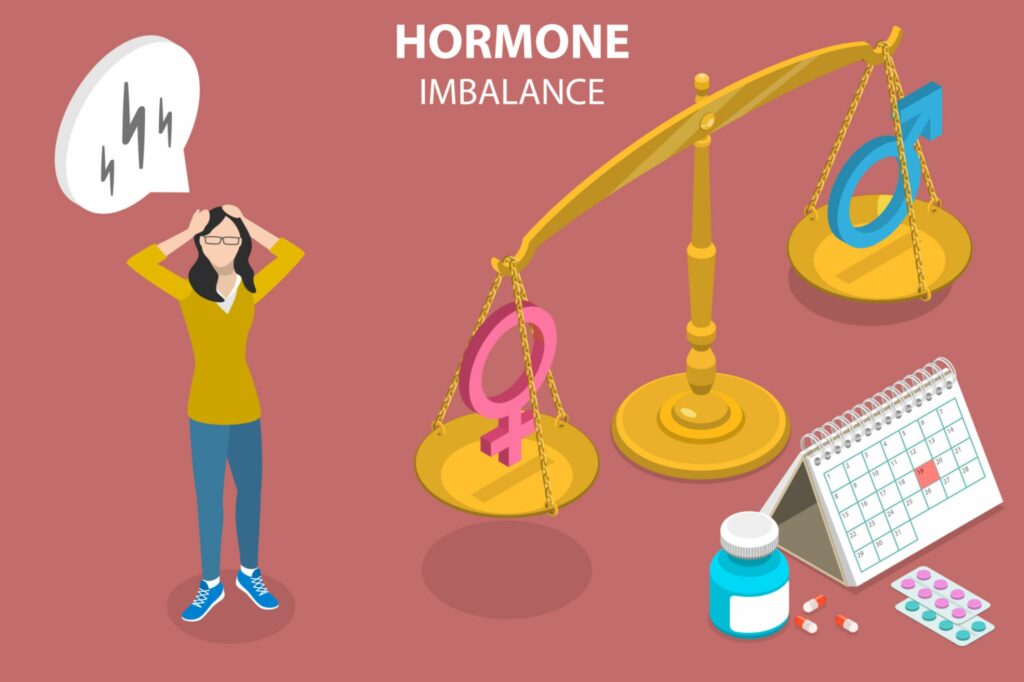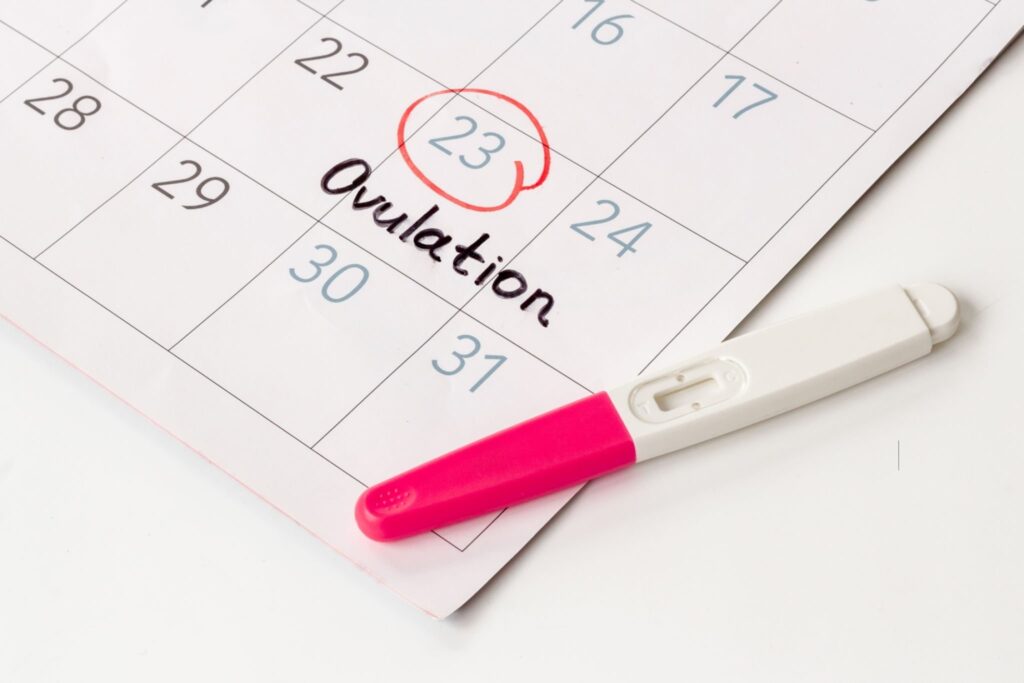
Hormones that affect Ovulation and fertility
By Team on 28 Dec, 2023
Ovulation is a phase in the menstrual cycle when your ovary releases an egg which travels down your fallopian tube and waits there to be fertilised. Hormones are produced by endocrine glands and sent into the bloodstream. It carries instructions about the functionalities of organs and tissues.
Follicle-Stimulating Hormone (FSH):
FSH is created by the pituitary gland and is responsible for maintaining menstrual cycle regularity and female fertility. FSH is responsible for triggering the growth of ovarian follicles before ovulation.
An imbalance in FSH can lead to fertility and menstrual problems. High FSH levels in females may indicate a reduced ovarian reserve or ovarian dysfunction as the body tries to compensate for the lack of function.
An imbalance in FSH can lead to fertility and menstrual problems. High FSH levels in females may indicate a reduced ovarian reserve or ovarian dysfunction as the body tries to compensate for the lack of function.
Luteinizing Hormone (LH):
An elevate in LH levels typically occurs around the middle of the menstrual cycle, causing the mature follicle to release the egg. Most ovulation prediction kits measure this hormone as it increases before ovulation. It is also produced by the brain’s pituitary gland.
Imbalance of LH levels can disrupt the normal ovulation process, leading to anovulation (lack of ovulation). It can also cause menstrual problems and infertility. Insufficient LH may result in premature ovarian failure and ovulatory dysfunction.
Imbalance of LH levels can disrupt the normal ovulation process, leading to anovulation (lack of ovulation). It can also cause menstrual problems and infertility. Insufficient LH may result in premature ovarian failure and ovulatory dysfunction.
Anti-Mullerian Hormone (AMH):
Anti-Mullerian Hormone is produced by the ovarian follicles that contain immature eggs and its primary function is to support those eggs. The levels of this hormone are used to predict the number of eggs that are remaining in the ovary.
Low AMH levels points out that there are few eggs remaining. High AMH levels can signal polycystic ovarian syndrome (PCOS). Though AMH gradually declines with age, exceptionally low levels in younger women indicates a higher risk of early menopause.
Low AMH levels points out that there are few eggs remaining. High AMH levels can signal polycystic ovarian syndrome (PCOS). Though AMH gradually declines with age, exceptionally low levels in younger women indicates a higher risk of early menopause.
Estrogen:
Estrogen plays a vital role in the growth and development of the egg and the preparation of the uterus for pregnancy. This hormone is mainly produced by the ovaries and controls the timing of the menstrual cycle.
Low estrogen levels can lead to irregular menstrual cycles or missed periods while high estrogen levels can cause changes in the menstrual cycle, including heavy or prolonged periods.
Low estrogen levels can lead to irregular menstrual cycles or missed periods while high estrogen levels can cause changes in the menstrual cycle, including heavy or prolonged periods.
Prolactin:
Prolactin is the hormone that handles milk production. It is also a key player in ovulation and infertility. This hormone is also produced by the pituitary gland.
High levels of prolactin can suppress the release of gonadotropin-releasing hormone (GnRH) that stimulates the release of follicle-stimulating hormone (FSH) and luteinizing hormone (LH) from the pituitary gland.
High levels of prolactin can suppress the release of gonadotropin-releasing hormone (GnRH) that stimulates the release of follicle-stimulating hormone (FSH) and luteinizing hormone (LH) from the pituitary gland.
Symptoms of Hormonal Imbalance affecting Ovulation:
- Irregular menstrual cycles
- Spotting between cycles
- Heavy or prolonged menstrual bleeding
- Lack of cervical mucus changes associated with ovulation
- Painful periods.
- Severe mood swings
- Infertility
- Acne
- Hair loss
- Unexplained weight gain.
- Low sex drive
Causes for the Hormonal Imbalance

Medical conditions affecting the thyroid and adrenal glands can lead to hormonal imbalance. Other factors include:
- Age
- Certain medications
- Food allergies
- Low body fat
- Obesity
- Stress
- Excess exercise
- Eating disorder
Treatments
Hormonal imbalance is usually due to an unhealthy lifestyle. Treating it naturally with certain changes in lifestyle is totally possible. It can be treated by including specific foods in the diet and also by following certain elimination diets. Include vitamin D-rich foods like milk, milk products, and eggs in your diet. Vitamin D plays a key role in supporting ovulation processes. Leafy vegetables are excellent sources of folic acid, vitamin E, magnesium, and calcium, essential for fetal development. Omega-3 fatty acids, found in foods like fatty fish, flaxseeds, chia seeds, and walnuts, are vital for hormone regulation, and enhancing blood flow to the uterus, supporting egg production. Treatments for hormonal imbalance may include medications to normalize hormone levels, induce ovulation or trigger a fully mature egg.
To conclude, hormones are prominent in fertility. Having a hormonal imbalance can impact fertility in various ways. With proper diagnosis and treatments, including lifestyle changes and medical interventions if needed, you can restore hormonal balance and improve your odds of conception.




